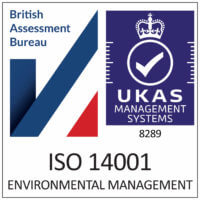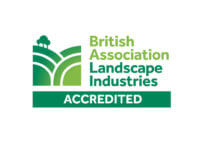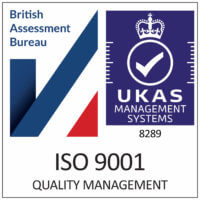Using Peat-Free All-Purpose Compost in Raised Beds
Oct 6th 2023
In this article, you will discover the wonders of using peat-free all-purpose compost in raised beds. Many gardeners are curious about whether it is suitable to opt for peat-free alternatives, and the answer is a resounding yes! By exploring the benefits of peat-free all-purpose compost, you will learn how this sustainable option not only promotes healthy plant growth but also helps to protect our environment. So, if you’re ready to enhance your gardening experience while reducing your carbon footprint, read on to find out more about this eco-friendly alternative for your raised beds.
Benefits of using peat-free all-purpose compost in raised beds
Environmental benefits
Using peat-free all-purpose compost in raised beds offers numerous environmental benefits. By opting for peat-free compost, you are making a conscious choice to reduce the demand for peat, which helps preserve peat bogs and the delicate ecosystems they support. Peat bogs are important carbon sinks, and their conservation is essential for mitigating climate change. Additionally, using peat-free compost reduces the impact on wildlife habitats and helps protect biodiversity.
Health benefits
Another advantage of using peat-free all-purpose compost in raised beds is the potential health benefits it provides. Peat-free compost eliminates the risk of exposure to harmful chemicals found in some commercial peat-based composts. These harmful chemicals can negatively affect human health and the well-being of plants. By using peat-free alternatives, you create a safer environment for yourself, your family, and your garden.
Cost benefits
Choosing peat-free all-purpose compost for your raised beds can also lead to cost savings in the long run. While the initial cost of peat-free compost may be slightly higher than peat-based alternatives, the improved quality and performance of the compost can result in better plant growth and reduced need for additional fertilizers or soil amendments. Additionally, by using compost made from recycled materials, you contribute to a circular economy, reducing waste and promoting sustainable practices.
Preparing the raised beds for peat-free all-purpose compost
Clearing the existing soil
Before adding peat-free all-purpose compost to your raised beds, it is essential to clear the existing soil or vegetation. Remove any weeds, grass, or debris to create a clean surface for the new compost. This process ensures that the nutrients and benefits of the peat-free compost are not compromised by competing plants or unwanted materials.
Adding a layer of organic matter
To improve the fertility and structure of your raised beds, it is recommended to add a layer of organic matter before introducing the peat-free all-purpose compost. Organic matter, such as well-decomposed compost, aged manure, or leaf mold, enriches the soil and provides essential nutrients for plant growth. Mixing this organic matter into the existing soil helps enhance its overall quality.
Leveling and smoothing the bed
After clearing the existing soil and adding organic matter, it is important to level and smooth the bed before applying the peat-free all-purpose compost. This step ensures an even distribution of the compost, optimizing its benefits for your plants. Use a rake or hand tools to level the surface and remove any large clumps or stones.
Benefits of using raised beds with peat-free all-purpose compost
Improved drainage
Using peat-free all-purpose compost in raised beds promotes improved drainage compared to traditional in-ground gardening. The raised bed design allows excess water to drain freely, preventing waterlogging and root rot. This efficient drainage system ensures that plant roots are not constantly saturated, reducing the risk of diseases caused by prolonged exposure to water.
Reduced weed growth
Raised beds filled with peat-free all-purpose compost provide a controlled growing environment, minimizing the growth of weeds. The raised bed structure creates a physical barrier between the compost and the surrounding soil, preventing weed seeds from infiltrating the growing area. This reduces the need for frequent weeding and allows your plants to thrive without competition for nutrients and sunlight.
Better aeration for root development
The loose and friable nature of peat-free all-purpose compost in raised beds allows for better aeration of the soil, promoting healthy root development. Plant roots require oxygen to grow and absorb nutrients effectively. The raised bed design ensures that the compost remains well-aerated, providing an optimal environment for roots to expand and establish themselves.
Easier maintenance and harvesting
Raised beds filled with peat-free all-purpose compost offer easier maintenance and harvesting compared to traditional ground-level gardens. The raised height of the beds reduces the need for bending or kneeling, making gardening activities more accessible and comfortable. Additionally, the controlled environment of raised beds allows for efficient monitoring and management of plants, facilitating maintenance tasks and ensuring a bountiful harvest.
Planting in peat-free all-purpose compost in raised beds
Choosing the right plants
When planting in peat-free all-purpose compost in raised beds, it is important to choose plants that are well-suited to this type of growing environment. Consider the specific requirements of each plant, such as sunlight exposure, moisture levels, and soil pH. Select plants that thrive in the conditions provided by the peat-free compost and raised beds to maximize their growth and productivity.
Proper spacing and arrangement
Proper spacing and arrangement of plants in raised beds are crucial for their healthy development. Be mindful of the mature size of each plant and provide enough space between them to avoid overcrowding. Overcrowded plants can compete for resources and inhibit each other’s growth. Arrange taller plants towards the back of the bed to avoid shading shorter plants.
Transplanting seedlings
Transplanting seedlings into raised beds filled with peat-free all-purpose compost requires care and attention. Ensure that the compost is sufficiently moist before transplanting to minimize transplant shock. Dig a hole large enough to accommodate the root ball of the seedling and gently place it into the hole. Backfill with compost and press the soil gently to secure the seedling in place.
Direct sowing
Certain plant varieties can be directly sown into raised beds without the need for transplanting. Follow the guidelines provided on the seed packets regarding depth, spacing, and planting times. Make sure the soil surface is level and moist before sowing the seeds. After sowing, gently cover the seeds with a thin layer of compost and water lightly to initiate germination.
Watering and mulching in raised beds with peat-free all-purpose compost
Watering frequency and techniques
Proper watering is important for the health and vitality of plants in raised beds filled with peat-free all-purpose compost. Monitor the moisture levels in the raised beds and water when the top inch of soil feels dry. Water deeply and evenly to encourage the development of strong root systems. Avoid overwatering, as it can lead to waterlogged soil and increased risk of diseases.
Choosing the right mulch
Mulching the surface of raised beds with peat-free all-purpose compost offers multiple benefits. Choose organic mulch materials, such our Composted Bark Fines, to retain moisture, suppress weed growth, and regulate soil temperature. Mulch also acts as a protective layer, reducing soil erosion and preventing nutrient leaching during heavy rain or watering.
Applying mulch properly
When applying mulch to raised beds, ensure that the compost is sufficiently moist before adding the mulch layer. Spread a layer of mulch roughly two to three inches thick, making sure to leave a small gap around the plant stems. Avoid piling mulch directly against plant stems, as it can create a moist environment that encourages rot and other diseases.
Maintaining and renewing peat-free all-purpose compost in raised beds
Regular monitoring and testing
Regularly monitor the condition of the peat-free all-purpose compost in your raised beds to ensure optimal plant growth. Check for signs of nutrient deficiencies, pests, or diseases. Conduct periodic soil tests to assess pH levels and nutrient content. This allows you to make any necessary adjustments or additions to maintain a healthy growing environment.
Top-dressing with compost
To replenish nutrients and maintain soil fertility, consider top-dressing the peat-free all-purpose compost in your raised beds annually. Apply a thin layer of compost across the surface of the beds, gently working it into the top few inches of the existing compost. This practice provides a slow-release source of nutrients for your plants and helps improve the overall health of the soil.
Rotating crops
Crop rotation is an effective practice in raised beds to prevent the buildup of pests and diseases. After each growing season, rotate the types of plants you grow in each bed. This prevents pests and diseases from establishing themselves in the soil and reduces the need for chemical interventions. Rotate plants from different families and consider incorporating cover crops to improve soil health.
Replacing old compost
Over time, the peat-free all-purpose compost in your raised beds may start to break down and lose its nutrient content. To ensure continued success, consider replacing the old compost after a few years. Remove the existing compost and replace it with fresh, nutrient-rich peat-free compost. This replenishes the growing medium and provides optimum conditions for future plantings.
Conclusion
Using peat-free all-purpose compost in raised beds offers numerous benefits for both the environment and your gardening endeavors. The environmental benefits include reducing the demand for peat and preserving fragile ecosystems, while the health benefits ensure a safer environment for you and your plants. Additionally, cost benefits can be achieved through improved plant growth and reduced reliance on additional fertilizers. By properly preparing the raised beds, choosing the right compost, and amending it as needed, you can optimize its performance. The benefits of using raised beds with peat-free all-purpose compost include improved drainage, reduced weed growth, and better aeration for root development. Planting, watering, and mulching techniques can further enhance the success of your raised bed garden. Regular maintenance, including monitoring, top-dressing, crop rotation, and compost replacement, ensures long-term success. By embracing peat-free all-purpose compost in raised beds, you create a sustainable and thriving garden for years to come.






